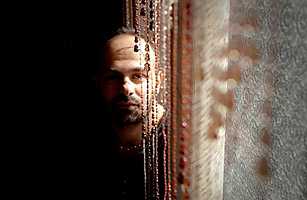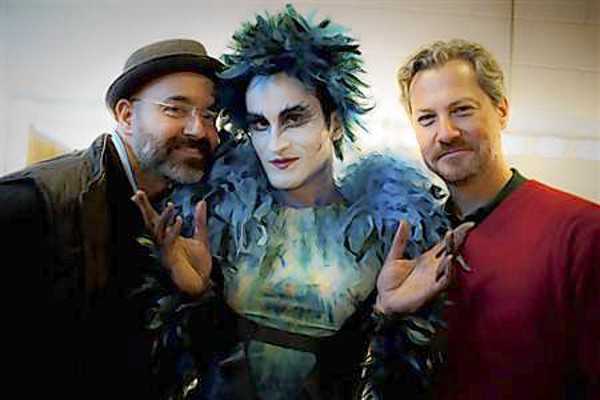
Turkish movie-theater bookers were less than enthusiastic when two directors — Mehmet Binay and Caner Alper — approached them with a film inspired by the true story of a 26-year-old killed, allegedly by his father, for being gay. Even though Binay and Alper’s film, Zenne Dancer, had won awards, they were told that Turkey was not ready for a mainstream gay movie.
“We were afraid and unsure too,” says Binay. But the pair, who recently came out to Turkish media as a couple, persevered. They launched a largely self-funded all-out publicity campaign and “based it on everybody’s right to life.” The film has gone on to clock up 85,000 admissions since opening earlier this month, holding its own against other domestic and U.S. releases. Now theaters across the country are asking to screen it. (PHOTOS: A Brief History of Gay Rights)
“It goes to show that there is growing awareness,” Binay says. “We’ve received so much positive feedback from viewers … Gay teenagers who have gone with their parents, for example. A lot of emotional responses.”
The film centers on Ahmet Yildiz, who was shot dead in Istanbul in 2008 in what newspapers have called “Turkey’s first gay honor killing.” Originally from a traditional family in southeastern Turkey, Yildiz went to Istanbul as a university student seeking freedom as a gay man. A year before he died, he had applied to local officials for protection, citing death threats from his father. But nothing was done. (PHOTOS: The Streets of Istanbul)
Yildiz’s father is the chief suspect in the murder and is believed to be hiding in north Iraq. In his absence, the trial continues at a glacial pace. Yildiz’s lawyer has accused officials of being halfhearted in their efforts to find him.
Directors Binay and Alper were Yildiz’s friends. They were shooting a documentary on zenne dancers (male belly dancers) when they received news of his death. Eventually, they decided to merge the zenne story line into a fictional scenario based on Yildiz’s story. Under the tagline “Honesty can kill,” the film uses the fictitious friendship of Yildiz and the zenne dancer to show the different experiences of various characters in declaring their sexuality to their family and close friends.
“It was important to us to try and break down some of the prejudices associated with gays,” says Mehmet. “These characters are not stereotypical. They have mothers, fathers, jobs … These are normal people.” (MORE: The Gay-Marriage Decision: Is It Too Narrow to Reach the Supreme Court?)
The success of Zenne Dancer is a reflection of Turkey’s growing openness toward airing some old taboos — a change that is paradoxically occurring under a conservative, Islamic-leaning government with a conflicted attitude about personal freedoms. Yet democratic progress is still patchy — some 100 journalists are currently in jail, a number on a par with China. Turkey lacks adequate hate-crime legislation that might discourage intolerance of differences, and hundreds of Kurdish activists have been jailed in recent months as part of a crackdown on an alleged urban wing of the separatist PKK, the Kurdish separatist group. “Pushing the military back was a great democratic achievement,” says Kutlug Ataman, a well-known artist who voted for the ruling Justice and Development Party because he saw it as a liberal alternative to military-dominated politics. “But I am seeing the same authoritarianism the military used to exercise coming back with a vengeance.”
Still, it is perhaps this push and pull, the ongoing tussle between conservative and progressive, secular and religious and, yes, East and West, that makes Istanbul one of the world’s more interesting cultural hot spots. As a co-founder of the city’s independent film festival in 2001, I have watched the transformation firsthand. When we first set out and decided to feature a LGBT sidebar, everyone said it was foolhardy. Sponsors politely asked for their logos to be removed from that part of the festival. But 11 years on, the festival audience has grown from 20,000 people that first year to around 70,000, and that section is now one of its best sellers. (TRAVEL: Inside Turkey’s Young Art Scene)
On Sunday, I watched Weekend, Andrew Haigh’s much acclaimed wistful gay love story, in a sold-out Istanbul theater. The audience was a mixed crowd of gay and straight and of all ages. As the credits rolled to scattered applause, I felt suddenly hopeful. “Turkey needs for the zenne to live,” says Mehmet. “It is a message of hope.”
via Turkish Taboos Challenged by Success of Movie About Gays – TIME.


